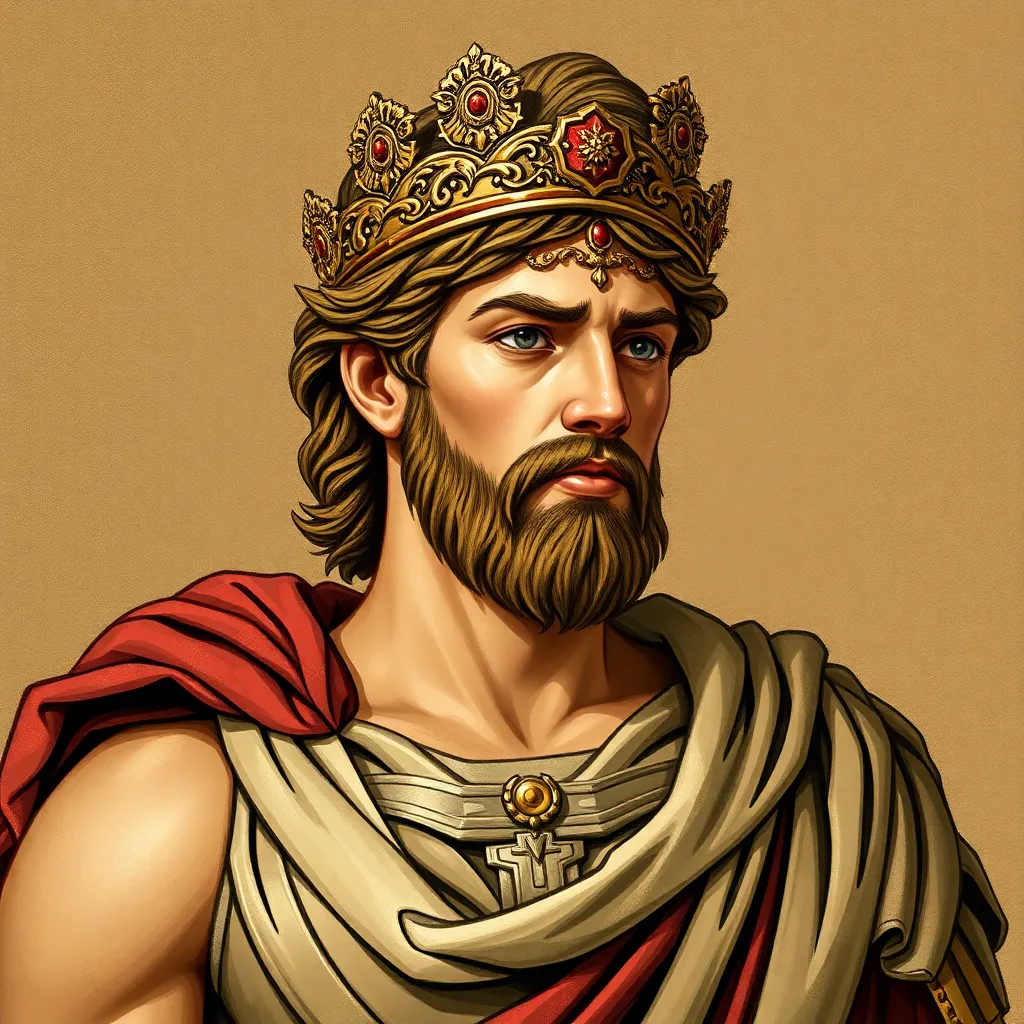The Character of Paris: The Prince Who Sparked the Trojan War
I. Introduction
In Greek mythology, Paris is a figure whose actions ignited one of the most famous conflicts in ancient history: the Trojan War. As a prince of Troy, he is often portrayed as a handsome yet controversial character whose decisions had far-reaching consequences. Paris is not merely a catalyst for war; he embodies themes of desire, beauty, and the complex nature of human relationships. This article aims to explore the character of Paris, his life, choices, and the lasting influence he had on the myths surrounding the Trojan War.
II. The Birth and Early Life of Paris
Paris’s story begins with a prophecy that foretold his role in bringing ruin to Troy. According to myth, King Priam of Troy was warned that his son would eventually lead to the city’s destruction. In an attempt to prevent this fate, Priam ordered the infant Paris to be abandoned on Mount Ida. However, he was rescued by a shepherd named Agelaus, who raised him as his own.
As a young man, Paris grew up in Phrygia, unaware of his royal lineage. His life as a shepherd was marked by simplicity and freedom, allowing him to develop a strong sense of independence. Key moments that shaped his character included:
- Learning to be a skilled herdsman and archer.
- His encounter with the three goddesses, which set the stage for his fateful choice.
- Gradually coming to terms with his identity and destiny.
III. The Role of the Golden Apple
The story of Paris is inextricably linked to the infamous Golden Apple of Discord. During the wedding of Peleus and Thetis, Eris, the goddess of discord, was not invited and, in retaliation, tossed a golden apple inscribed with the words “To the fairest.” This act led to a contest among the goddesses Hera, Athena, and Aphrodite.
Paris was chosen to judge this contest, a decision that would change his life forever. Each goddess offered him a bribe:
- Hera: Power and kingship.
- Athena: Wisdom and military success.
- Aphrodite: The love of the most beautiful mortal woman, Helen.
Ultimately, Paris’s choice of Aphrodite not only reflected his values but also highlighted the themes of beauty and desire that permeate his character. This decision set off a chain of events that would lead to the Trojan War.
IV. Paris and Helen: The Abduction that Changed History
Helen of Sparta, often described as the most beautiful woman in the world, became the object of Paris’s desire. Her significance in Greek mythology cannot be overstated; her beauty was said to be so great that it could incite wars. Paris’s relationship with Helen has been interpreted in various ways, leading to questions about whether their bond was based on true love or mere lust.
The abduction (or elopement) of Helen by Paris was a pivotal moment in the mythological narrative. It led to the unification of the Greek states under the leadership of Agamemnon, who sought to retrieve Helen and avenge the dishonor brought upon his brother Menelaus. The consequences of this act were monumental:
- Initiation of the Trojan War, a ten-year siege of Troy.
- Involvement of numerous heroes and deities, altering the course of Greek mythology.
- Creation of alliances and enmities that shaped the future of Greek culture.
V. Paris as a Warrior: Strengths and Weaknesses
While Paris is often remembered for his beauty and romantic choices, he also played a significant role in the Trojan War as a warrior. He was known for his skills in battle, particularly his prowess with a bow. However, his performance on the battlefield presents a complex picture:
- Strengths: Paris was a skilled archer, capable of striking down enemies from a distance.
- Weaknesses: He was often criticized for his lack of bravery and willingness to avoid direct combat.
- Heroic Image vs. Perceived Cowardice: Many viewed him as a coward, especially when compared to his brother Hector, who fought valiantly for Troy.
Paris’s duality as both a lover and a warrior adds layers to his character, illustrating the tensions between love and duty.
VI. The Complex Relationships of Paris
Paris’s relationships with his family and fellow warriors further illuminate his character. As the son of King Priam, he was part of a royal lineage that included notable figures such as Hector, his noble brother. The dynamics between Paris and his family were often strained, particularly due to the war and its devastating impact on Troy.
His relationships with other heroes were equally complex. While some admired him, others viewed him with disdain:
- Hector: A protective brother, often frustrated by Paris’s choices.
- Achilles: An enemy who saw Paris as a coward, yet was ultimately killed by him.
- Menelaus: The aggrieved husband of Helen, seeking revenge against Paris.
Paris’s actions significantly impacted the morale and unity of Troy, often dividing opinions on his role in the war.
VII. The Legacy of Paris in Literature and Art
Paris’s character has been depicted in various ancient texts, most notably in Homer’s “Iliad.” His portrayal varies, reflecting the complexities of his character and the differing perspectives of authors throughout history. Notable aspects of his legacy include:
- His role as a symbol of desire and the consequences of choice.
- Influence on later artistic representations, including sculptures, paintings, and operas.
- The evolution of his character from a tragic figure to one embodying the flaws of humanity.
Through these depictions, Paris remains a compelling figure whose story resonates with themes of love, betrayal, and the chaos of war.
VIII. Conclusion
In summary, Paris is a multifaceted character whose life and decisions had profound implications for the narrative of the Trojan War. His story serves as a cautionary tale about the consequences of desire and the complexities of human relationships. The moral lessons derived from Paris’s choices continue to resonate, highlighting the enduring significance of his character in the rich tapestry of Greek mythology.




